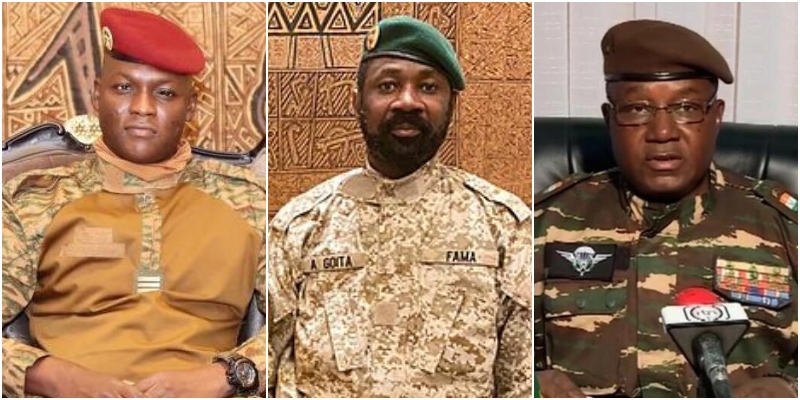Three West African countries under military rule—Burkina Faso, Mali, and Niger—have announced visa-free travel and residency rights for citizens within the 15-member regional bloc, ECOWAS, ahead of their planned departure from the group.
The leaders of these countries stated that the decision to grant visa and residency privileges was made in the spirit of friendship and to strengthen the longstanding ties among African nations.
The three countries are set to leave ECOWAS in January after refusing the bloc’s demand to restore democratic governance.
At a meeting in Nigeria on Sunday, ECOWAS leaders expressed respect for the decision to withdraw, but offered a six-month grace period for reconsideration. The trio could be readmitted to the bloc if they choose to rejoin, according to an ECOWAS communique.
During the transition period from January 29 to July 29, 2025, negotiations led by Senegal’s President Bassirou Diomaye Faye and Togo’s Faure Gnassingbé will continue.
Despite attempts to persuade them, the military juntas have remained firm in their decision. After a ministerial meeting on Friday in Niamey, the three states issued a joint statement declaring their decision to be “irreversible.”
There are concerns that their withdrawal could significantly impact regional unity and hinder efforts to enhance economic and security cooperation.
At the summit’s opening, ECOWAS Commission head Omar Touray called their “impending exit” “disheartening” but commended the ongoing mediation efforts, according to AFP news agency.
ECOWAS members have not yet decided whether to allow citizens of the three Sahel states to live and work within the bloc. Meanwhile, the ECOWAS Commission in Abuja has been tasked with determining the future relations between the two blocs.
Burkina Faso, Mali, and Niger were founding members of ECOWAS in 1975. With their departure, the bloc will lose 76 million of its 446 million people and more than half of its geographical land area.
This marks the first division in ECOWAS history, with the three breakaway nations forming their own group, the Alliance of Sahel States.
In a statement, the new alliance’s chairman, Mali’s military ruler Assimi Goïta said the right of Ecowas citizens to “enter, circulate, reside, establish and leave the territory” of the new bloc would be maintained.
His statement was interpreted as a message to ECOWAS leaders, indicating that despite their decision to leave the bloc, Burkina Faso, Mali, and Niger still sought to maintain good relations with ECOWAS.
In January 2023, the three countries informed ECOWAS of their intention to withdraw, adhering to the timeline set by the bloc for member states choosing to leave.
Tensions have been high between ECOWAS and the three countries following military coups in Niger in July, Burkina Faso in 2022, and Mali in 2020. ECOWAS condemned the coups and suspended their membership, urging a return to civilian rule.
However, the coup leaders have remained steadfast, shifting their alliances towards Russia. They accuse ECOWAS of being overly aligned with Western powers and are increasingly turning to Russia for support in combating armed jihadists waging insurgencies in the region.



